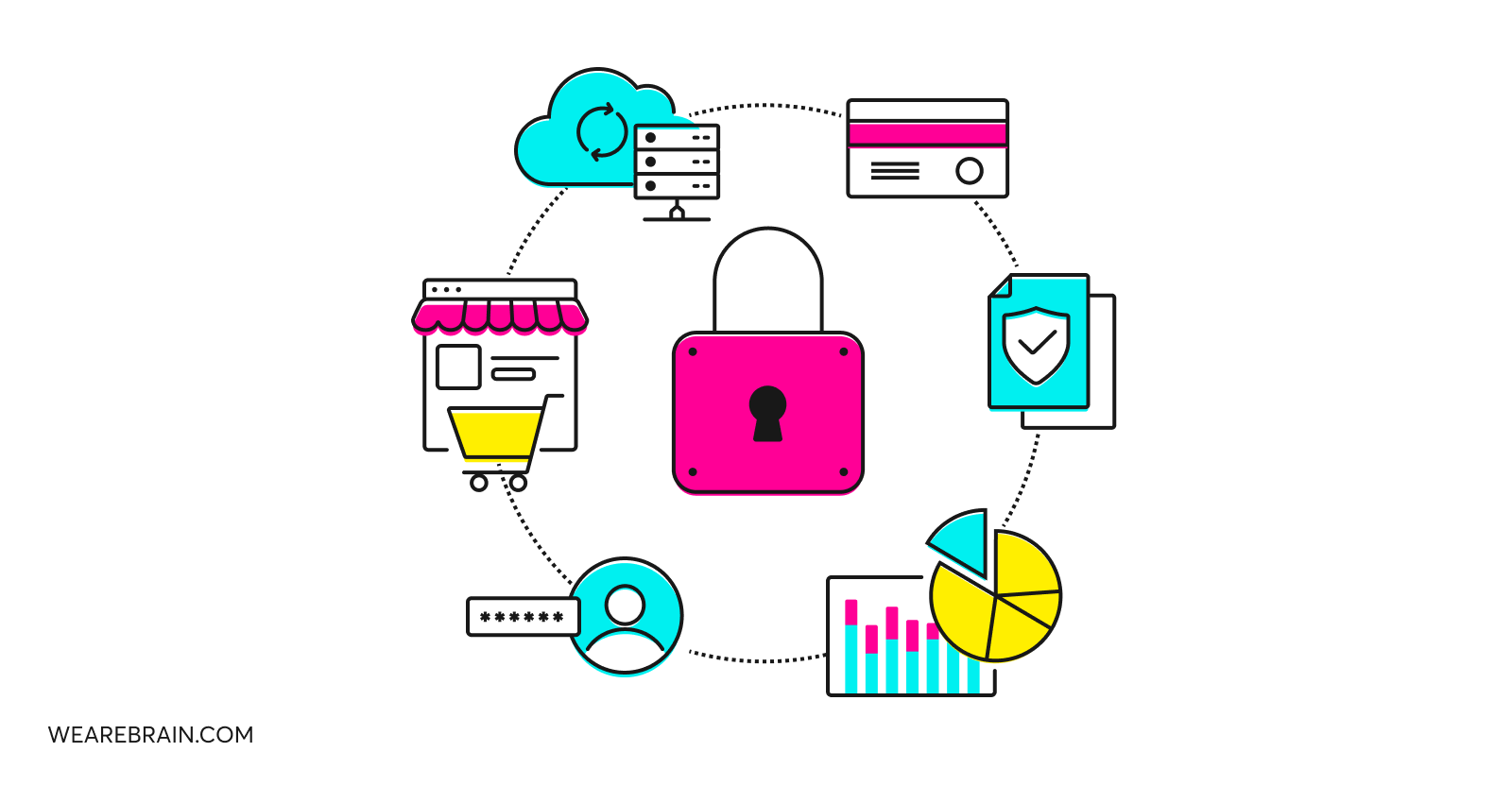Why is e-commerce security so important?

The fast-paced e-commerce industry has revolutionised the way we shop and conduct business. Being so accessible and convenient, e-commerce has become an integral part of our daily lives.
But with all the benefits it provides, the e-commerce space also presents certain security risks for both customers and businesses alike. Let’s take a look at just how important the role of e-commerce security is for our modern society and explore the best e-commerce security practices users ad businesses can implement.
Understanding e-commerce security threats
To wrap one’s head around the importance of e-commerce security, it is vital to first understand the various threats which exist in the digital space. These threats form part of a range of malicious online activities designed to target e-commerce platforms and businesses.
Fraud
E-commerce fraud involves any unauthorised transaction, identity theft, and stolen credit card information. When not properly secured, the online payment process is a vulnerable transaction and can lead to financial theft at the hands of cybercriminals.
Data breaches
Data breaches are when cybercriminals gain access to sensitive customer information, including names, addresses, and even payment details. The information stolen in a data breach can make it easier for cybercriminals to perform identity theft and financial fraud.
Phishing attacks
Phishing attacks involve fraudulent criminal acts designed to trick users into giving their personal information. These come in the form of legitimate-appearing e-mails, messages, or even websites where users will be asked to fill in a form with their personal details or hand over their sensitive data.
How businesses can ensure better e-commerce security
The impact these e-commerce security threats pose to both users and businesses is significant. However, businesses stand to lose more – from financial losses and legal liabilities to reputational damage and loss of customer trust.
To ensure solid e-commerce security, businesses must implement a variety of robust practices and processes. There are a few ways businesses can protect themselves and customers from potential threats that will help safeguard customer information.
Here are the best e-commerce security practices businesses can implement:
Secure Sockets Layer (SSL) Certificates
SSL certificates are designed to encrypt the data that is transmitted between a user’s browser and e-commerce websites, ensuring a secure connection. This essential e-commerce security tool protects sensitive data from being intercepted by cybercriminals.
Firewalls
Firewalls are a binary barrier/wall between a business’s internal network and the outside world. They are designed to monitor and control all incoming and outgoing network traffic and are able to quickly identify and block any unauthorised access.
Two-factor authentication
Another essential e-commerce security practice is two-factor authentication. This tool adds an additional security layer by asking users to provide extra verification information. These are commonly a one-time password (OTP) or code sent to a mobile phone or a code sent to their email. For more robust security, people can use authenticator apps such as Apple Passkeys, Google Authenticator, and Microsoft Authenticator.
Secure payment gateways
Secure payment gateways provide an added layer of protection for all customer online transactions. These gateways use encryption and fraud detection tools that reduce the risk of payment-related fraud.
Regular software updates
Businesses must keep their systems and software up to date regularly to address potential security vulnerabilities. Regular software updates and patches ensure e-commerce businesses are able to stay ahead of new cyber threats and create a consistently safe online environment for their customers.
How businesses can help customers shop safely online
While businesses hold most of the responsibility for e-commerce security, it is beneficial to educate customers on the best e-commerce security practices. Together with e-commerce security processes and tools, businesses can create an added layer of protection by educating their customers.
By empowering customers with knowledge and awareness, businesses can help to help to create an enjoyable and safe online shopping experience.
E-commerce security threat education can help customers be more cautious and proactive in protecting their personal information when they know what to look out for during their online shopping journey. Customers will then know to use strong passwords and be more aware to recognise phishing scams to thwart any cybercriminals from stealing their sensitive information.
Final thoughts
The growing risks and threats in online transactions make e-commerce security vitally important for both businesses and customers. E-commerce businesses must take serious action to adopt robust security practices, such as SSL certificates, firewalls, two-factor authentication, regular updates, and secure payment gateways. By prioritising e-commerce security, businesses can protect sensitive information, and mitigate financial and reputational risks. These measures will retain customer trust – the holy grail of e-commerce.
However, the responsibility does not only lie with businesses. Customers also have a role to play to create a safe and secure e-commerce ecosystem. By educating customers about e-commerce security best practices, businesses can empower online shoppers to make informed decisions and protect themselves from potential threats.
Mario Grunitz
Working Machines
An executive’s guide to AI and Intelligent Automation. Working Machines takes a look at how the renewed vigour for the development of Artificial Intelligence and Intelligent Automation technology has begun to change how businesses operate.







